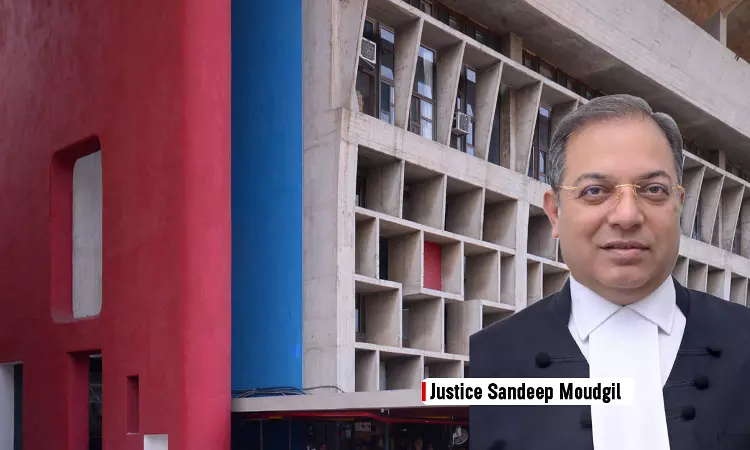- Home
- /
- High Courts
- /
- Punjab and Haryana High Court
- /
- P&H High Court Upholds Punishment...
P&H High Court Upholds Punishment Of Armed Forces Officer Over Religiously Provocative Speech, Says It 'Betrayed Constitutional Values'
LIVELAW NEWS NETWORK
28 Oct 2025 9:31 PM IST
The Punjab and Haryana High Court has upheld the disciplinary punishment imposed on a Central Industrial Security Force (CISF) officer accused of delivering a religiously provocative speech at a public gathering, observing that such conduct betrays constitutional values and the disciplined character expected of members of the armed forces.Justice Sandeep Moudgil said, "members of a...
The Punjab and Haryana High Court has upheld the disciplinary punishment imposed on a Central Industrial Security Force (CISF) officer accused of delivering a religiously provocative speech at a public gathering, observing that such conduct betrays constitutional values and the disciplined character expected of members of the armed forces.
Justice Sandeep Moudgil said, "members of a disciplined armed force are not ordinary citizens in the context of public conduct and responsibility. Their role in upholding the integrity, security, and unity of the nation is not only physical but also moral. With the authority and respect that the uniform commands, comes a heightened obligation to conduct oneself with utmost restraint, impartiality, and dignity, both in and out of uniform."
The bench highlighted that, "one who has sworn allegiance to the Constitution, chooses the pulpit of a public gathering to scatter seeds of religious animus, he tears the fabric he is duty-bound to protect and the conduct cannot be treated lightly. It must be remembered that freedom of speech, though a fundamental right, is not absolute and carries with it reasonable restrictions, particularly when it borders on hate speech or threatens public peace. An officer addressing a gathering in a manner that could be interpreted as religiously provocative betrays not only professional discipline but also constitutional values."
Freedom Of Speech Not Absolute
The Court further said, one who has sworn allegiance to the Constitution, chooses the pulpit of a public gathering to scatter seeds of religious animus, he tears the fabric he is duty-bound to protect and the conduct cannot be treated lightly. It must be remembered that freedom of speech, though a fundamental right, is not absolute
"The higher the position and responsibility, the greater the standard of conduct expected. Words have power and when they are used to divide, rather than unite, especially by those in positions of authority, they become tools of discord rather than instruments of leadership," the bench said.
The disciplinary proceedings were initiated following a communication from the Additional Director General of Police (Intelligence), Punjab, alleging that the petitioner—an officer of the CISF—had delivered an inflammatory and religiously charged speech during a public gathering.
The Court noted that the CISF, being a disciplined armed force, is governed by a strict code of conduct. Under Section 15A of the CISF Act, 1968, members of the Force are expressly prohibited from participating in or addressing any meeting organized for political or other prescribed purposes that may lead to public disorder.
A departmental inquiry was conducted after a preliminary investigation. Although the Enquiry Officer initially held that the charges were not proved, the Disciplinary Authority disagreed with the findings, citing specific reasons and material evidence allegedly overlooked. After granting the petitioner an opportunity to respond, the Authority imposed a penalty of reduction in pay by one stage for one year.
Subsequently, upon review, the punishment was enhanced—after issuance of a show cause notice—to reduction by two stages for three years with adverse impact on future increments. The Reviewing Authority passed a detailed, reasoned order confirming the enhanced penalty.
Rejecting the petitioner's argument that the absence of an FIR or the police's conclusion of false implication should nullify the disciplinary action, the Court emphasized that the standards of proof in criminal and departmental proceedings are distinct—the latter being governed by the preponderance of probabilities.
“Mere allegations of mala fides or motivated complaint, without substantive evidence, cannot invalidate an otherwise legally conducted enquiry,” the Court added.
Finding no procedural irregularity or disproportionality in the punishment, the High Court concluded that the impugned orders did not warrant interference.
Title: Gurnam Singh Constable v UOI
Surinder Sharma appeared for the petitioner.
Arun Gosain Sr. Govt counsel for respondent.
Citation: 2025 LiveLaw (PH) 416



